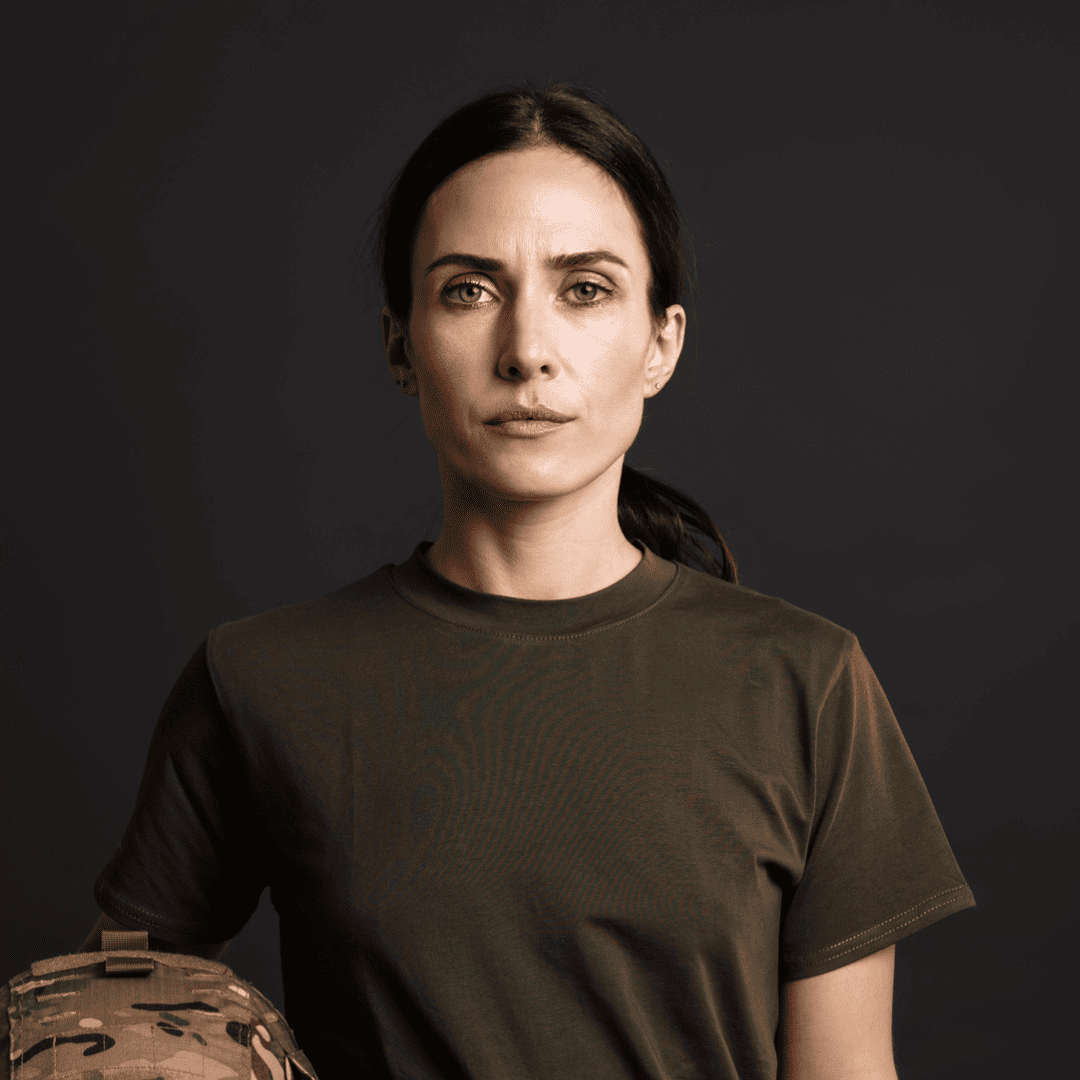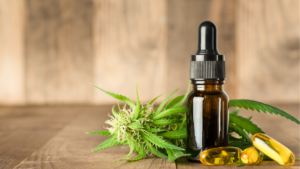Individuals should have access to therapy options that are effective in improving quality of life without damaging side effects. Currently, veterans who have risked their lives to serve face several barriers to access in our healthcare system. This includes limited availability of facilities or specialists, resource constraints that impact quality of care, and delays in benefits.
Despite studies to support the use of “alternative therapies” such as cannabis to address the life-limiting and debilitating conditions veterans face, VA clinicians may not offer recommendations for medical cannabis use. This leaves many questions unanswered and several veterans self-medicating versus receiving proper guidance from a healthcare provider.
Here in this blog, we detail the problems with the currently available treatment options, research to support cannabinoid therapy as a wellness option, how to get involved in our women’s veteran study, and additional resources for support.
What problems are veterans seeing with currently available, VA-approved treatment options?
- Selective serotonin reuptake inhibitors (SSRIs) are considered the first-line pharmacological treatment for post-traumatic stress disorder (PTSD). However, even when treated with this class of drugs, response rates rarely exceed 60% and less than 20–30% of the patients achieve full remission. The well-known difficulties in managing PTSD are aggravated when the patient does not respond to or does not tolerate treatment with antidepressants.
- Findings highlight the facts that symptoms of PTSD are heterogeneous and each of them may respond differently to specific medication and provides a strong stimulus for investigating new symptom-specific drugs. New treatments for PTSD are needed to reduce the suffering and the disability associated with this disorder.
- Benzodiazepines are frequently prescribed by physicians in the aftermath of a traumatic event in an effort to prevent the development of psychological sequelae or, if PTSD eventually arises, to reduce active post-traumatic symptoms, like hypervigilance, or control associated nonspecific behavioral disturbances, such as marked anxiety or agitation. Thus far, there is no compelling scientific evidence of the effectiveness of benzodiazepines either in the prevention of PTSD or in the treatment of its core symptoms although clinical experience suggests that they may improve sleep and agitation, at least in the short term. These limited advantages must be weighted against the marked potential for addiction that characterizes this class of drugs, particularly considering that PTSD patients have higher rates of drug abuse/dependence than the general population.
- U.S. military veterans have been heavily impacted by the opioid overdose crisis, with drug overdose mortality rates increasing by 53% from 2010–2019. Opioids in particular have considerable side effects, including constipation, impaired sleep, and respiratory depression. The rapid increase in opioid use and opioid-associated mortality is largely attributed to use of opioids in chronic pain treatment.
- Suicide rates have been historically high among young Veterans and older Veterans as well. In the 20 years between 2001 and 2020, the suicide rate among Veterans between the ages of 18 and 34 increased by 95.3%. Factors that play a role in the high suicide rate:
- Acute psychosocial stressors.
- Higher doses of opioid medications for pain control.
- Insomnia.
- Mental health conditions like anxiety disorder, manic-depressive disorder, depression, post-traumatic stress disorder (PTSD), and traumatic brain injury (TBI).
- Substance misuse, especially heavy binge drinking.
- At the clinical level, suicidality, which encompasses suicidal thoughts, ideation, plans, attempts, and completed suicide, is considerably associated with affective disorders, chronic pain, anxiety, psychosis, substance use disorders, and sleep problems.
Cannabis benefits for veterans
Remarkable quality of life improvements are attributed to medicinal cannabis use. Many life-limiting conditions plague the veteran community, from sleep disorders to epilepsy to PTSD; all of which may be alleviated with guided cannabis use.
There have been two observations of importance that have led researchers to further explore cannabinoid therapy as a PTSD treatment option. First, patients with PTSD were found to be more likely to consume cannabis as a form of self-medication in an attempt to reduce their symptoms of anxiety and disrupted sleep. Secondly, patients with PTSD were shown through research to have increased levels of cannabinoid receptors while decreased peripheral levels of the endogenous cannabinoid, Anandamide (AEA). This means that those suffering with PTSD may be experiencing an AEA deficiency.
Due to the modulating effect of cannabidiol (CBD) on the ECS, and considering the many body processes that the ECS regulates, CBD has seen increased research for potential value in several conditions. Research has stated that the “ECS can provide more efficient and better tolerated alternatives to the standard treatments for PTSD”. The potential of cannabinoid therapy has been repeatedly demonstrated in animal models of traumatic event exposure as well as anecdotally in humans. CBD, in particular, is promising as it has been researched for its effectiveness among generalized anxiety disorders, depression, and traumatic memories while proving to be well tolerated by humans, both in overall safety and possible side effects.
- A comprehensive review of 132 original studies by Bergamaschi et al. describes the safety profile of CBD. Chronic use and high doses of up to 1500 mg per day have been repeatedly shown to be well tolerated by humans.
- Preliminary clinical trials also support the efficacy of CBD as an anxiolytic, antipsychotic, and antidepressant, and more importantly, a positive risk-benefit profile. These promising results support the development of large-scale studies to further evaluate CBD as a potential new drug for the treatment of these psychiatric disorders.
- CBD could significantly reduce opioid use and improve chronic pain and sleep quality among patients who are currently using opioids for pain management.
- 53% of participants from a 2020 study reported reduced or eliminated their opioids within 8 weeks after adding CBD-rich hemp extract to their regimens. Almost all CBD users (94%) reported quality of life improvements.
- Data indicate that repeated administration of CBD may produce an effect that is consistent with results from studies testing traditional antidepressant medications.
What does the VA say about veterans and cannabis?
Per the U.S. Department of Veterans Affairs (VA), some things veterans need to know about cannabis and the VA are:
- Veterans will not be denied VA benefits because of cannabis use.
- Veterans are encouraged to discuss cannabis use with their VA providers.
- VA health care providers will record cannabis use in the Veteran’s VA medical record in order to have the information available in treatment planning. As with all clinical information, this is part of the confidential medical record and protected under patient privacy and confidentiality laws and regulations.
- VA clinicians may not recommend medical cannabis.
- VA clinicians may only prescribe medications that have been approved by the U.S. Food and Drug Administration (FDA) for medical use. At present most products containing tetrahydrocannabinol (THC), cannabidiol (CBD), or other cannabinoids are not approved for this purpose by the FDA.
- VA clinicians may not complete paperwork/forms required for Veteran patients to participate in state-approved cannabis programs.
- VA pharmacies may not fill prescriptions for medical cannabis.
- VA will not pay for medical cannabis prescriptions from any source.
- VA scientists may conduct research on cannabis benefits and risks, and potential for abuse, under regulatory approval.
- The use or possession of cannabis is prohibited at all VA medical centers, locations and grounds. When you are on VA grounds it is federal law that is in force, not the laws of the state.
- Veterans who are VA employees are subject to drug testing under the terms of employment.
Providing a direct service to veterans: How Realm of Caring may help
Finding support and recommendations for cannabinoid therapy and PTSD can be difficult. But that is where the nonprofit Realm of Caring (RoC) may step in to help. Since 2013, trained RoC care specialists have helped with product and practical administration suggestions. In general, tested CBD products are safe but responsible use and guidance, as well as oversight by a healthcare professional whenever possible, are always recommended. RoC is here to help start and facilitate those conversations along the way.
RoC provides a free cannabinoid therapy education hotline for anyone who seeks more information and guidance. RoC has helped more than 75,000 people worldwide with one-on-one support to find a product and routine that serves their needs. RoC gives each client the extended time they need, follow-ups, and on-going support that go beyond product knowledge (for example how to talk to your doctor and where to find researched-backed information for specific conditions).
RoC founders realized that to truly legitimize cannabinoid therapy and advocate for patient access, research needs to take place. There is a critical need to identify new treatment options and give a voice to many underrepresented communities, to include the veteran community. Realm of Caring is actively recruiting for an IRB-approved, in-depth observational study of cannabis use amongst female veterans. The will be a longitudinal study conducted over several months to assess health outcomes related to cannabis use. Additionally, extensive qualitative data in the form of interviews and open-ended survey questions will assess first-hand narrative experiences to give a voice to this community.
Throughout the study, participants will be offered guidance and support by our dedicated care team. After completing each survey, they will also be compensated for their involvement in the study. Participants are volunteers and can withdraw from the study at any time.
Register today for the Women’s Veteran Study
Additional Resources for Veterans
Realm of Caring is proud to partner with Veteran-focused organizations, who care about enhancing the quality of life of our heroes. Click below to learn more.
Adaptive Training Foundation provides access and inclusion to individuals living with physical or traumatic impairments by empowering them through exercise and community.
Irreverent Warriors knows that the best support network for veterans is other veterans. We bring a community of warriors together through therapeutic events across the country. We also work with other veteran organizations who provide services such as job placement, training, housing, service dogs and more.
There are over 20 million military veterans and tens of millions of active and retired first responders. In the shadows, a countless number of these heroes are desperately struggling with addiction to deadly drugs prescribed for service related injuries and psychological disorders. HeroGrown® Foundation is the preeminent organization fighting for their right to choose cannabis as a safe alternative.
We Decode aims to be your one stop shop for your personal health and wellness report as a comprehensive approach to health management, health education, and treatment and prescriptions selection. With the results of our DNA Test, you are empowered to make optimal health decisions and strive toward your best self.
In need of a medical card?
Our friends at CMed and Leafwell can help you get your card online in minutes.





